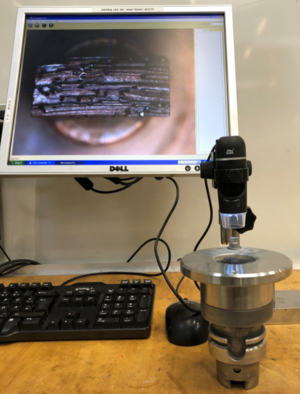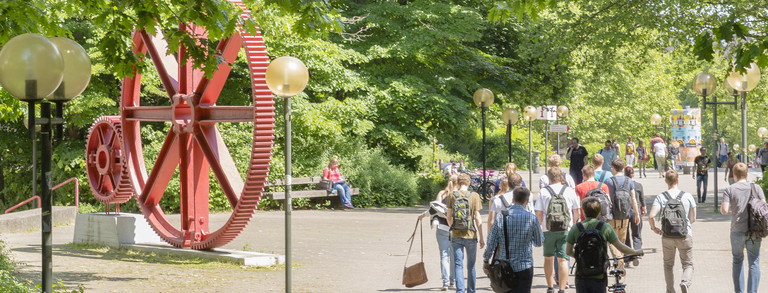Technometrics at the Department of Statistics
Technometrics is of particular importance at a technical university. This is reflected in numerous cooperations of the Statistics Department with the departments of engineering and natural sciences of the TU Dortmund. Also in the SFB 823, there are numerous cooperations in Section B with the engineering sciences.
The Statistics Department contributes to teaching, research and consulting in all areas of Technometrics. A more detailed description of research projects can be found under the link Research Areas in Technometrics.
Graduates in the field of Technometrics have particularly good career opportunities since statistics with the improved possibilities of data collection is playing an increasingly important role in engineering, computer science, physics and chemistry. Statisticians working in the technical field are similarly paid as engineers.

Content
Originally, Technometrics was primarily concerned with quality control in the technical production process. This is still an important area and involves many recent developments such as in the field of control cards and measuring system analysis. Nowadays reliability analysis and statistical experimental design as well as statistical modelling and simulation of technical processes are added. As more and more data is generated through the use of different sensors, new statistical methods for very large data (big data) are needed.
Quality Control
Quality control includes production monitoring, measuring system analysis and acceptance testing. Via production monitoring, the production process is continuously controlled by means of so-called control cards. By means of measuring system analysis, the control equipment is examined. The methods of acceptance testing ensure that products meet specified quality requirements.
Reliability Analysis
The reliability analysis examines the durability and endurance of products. The products are not only technical devices but also structures such as bridges and wind turbines. Not only the overall lifetime of a product is considered, but also that of their components, and the interactions between the components are analysed. A special aspect is material fatigue, where, among other things, the growth of cracks is investigated.
Statistical Experimental Design and Optimization
Statistical experimental design serves to make technical, physical or chemical experiments more efficient so that fewer experiments are necessary. In addition, the methods of statistical experimental design are used to optimize production processes, chemical products and technical equipment.
Statistical Modelling and Simulation
By means of statistical modelling, random processes are described in such a way that a statistical analysis becomes possible. Statistical modelling of complex systems with many components is a particular challenge. Often the statistical models can then only be checked by simulations on the computer.


![[Translate to English:] [Translate to English:]](/storages/zentraler_bilderpool/_processed_/1/0/csm_Mathegebaeude_tower_65b0807b30.jpg)
![[Translate to English:] [Translate to English:]](/storages/zentraler_bilderpool/_processed_/0/2/csm_Erstsemensterbegruessung_02_f9632ebd02.jpg)
![[Translate to English:] [Translate to English:]](/storages/zentraler_bilderpool/_processed_/9/0/csm_Seminarraumgebaeude_Studienstart_7_fbbfa00e02.jpg)
![[Translate to English:] [Translate to English:]](/storages/zentraler_bilderpool/_processed_/c/c/csm_Mathematik_Econometrics_e89197daf2.jpg)
![[Translate to English:] [Translate to English:]](/storages/zentraler_bilderpool/_processed_/3/0/csm_steigende_Stufen_92633e28d7.jpg)
